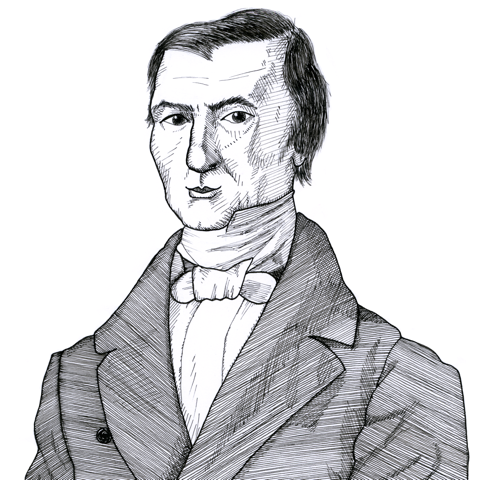
Bastiat on the need for urgent political and economic reform (1848)
The French classical liberal economist and member of parliament Frédéric Bastiat (1801-1850) started a small magazine after revolution broke out on 22 February in Paris. In one article he argued that there were two avenues for reform - politically directed reform via redistribution or leaving people alone to enjoy their liberty and property:
Politics & Liberty
So, as we have said, two systems (of reform) , discussed at length by polemicists, now confront one another.
One aspires to create the happiness of the people through direct measures. It says: “If someone suffers in any way, the state will be responsible for relieving him. It will give bread, clothing, work, care, and instruction to all those who need it.” …
But if the state does not have in its possession and does not produce any of these things, if they can be created only by human labor, if all the state can do is to take them by way of taxation from the workers who have created them in order to hand them over to those who have not created them, if the natural result of this operation must be, far from increasing the mass of these things, to discourage their production, if from this reduced mass the state is obliged to keep a part for its agents, if these agents who are responsible for the operation are themselves withdrawn from useful work, and if, finally, this system which appears so attractive at first sight, generates more misery than it cures, then it is proper to have doubts and seek to ascertain whether the welfare of the masses might not be generated by another process…
We, for our part, are convinced that this (latter) system is bad, and that there is another for achieving the good of the people, or rather for the people to achieve their own good; this consists in our giving the state all it needs to accomplish its essential mission, which is to guarantee internal and external security, respect people and property, the free exercise of faculties, and the repression of crime, misdemeanors, and fraud, and, after having given this liberally to the state, in keeping the rest for ourselves.